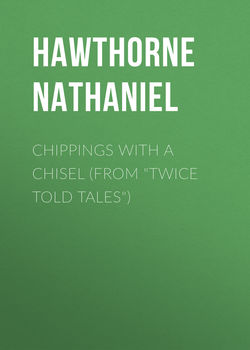
000
ОтложитьЧитал
My observations gave me the idea, and Mr. Wigglesworth confirmed it, that husbands were more faithful in setting up memorials to their dead wives than widows to their dead husbands. I was not ill-natured enough to fancy that women, less than men, feel so sure of their own constancy as to be willing to give a pledge of it in marble. It is more probably the fact, that while men are able to reflect upon their lost companions as remembrances apart from themselves, women, on the other hand, are conscious that a portion of their being has gone with the departed whithersoever he has gone. Soul clings to soul; the living dust has a sympathy with the dust of the grave; and, by the very strength of that sympathy, the wife of the dead shrinks the more sensitively from reminding the world of its existence. The link is already strong enough; it needs no visible symbol. And, though a shadow walks ever by her side, and the touch of a chill hand is on her bosom, yet life, and perchance its natural yearnings, may still be warm within her, and inspire her with new hopes of happiness. Then would she mark out the grave, the scent of which would be perceptible on the pillow of the second bridal? No – but rather level its green mound with the surrounding earth, as if, when she dug up again her buried heart, the spot had ceased to be a grave. Yet, in spite of these sentimentalities, I was prodigiously amused by an incident, of which I had not the good fortune to be a witness, but which Mr. Wigglesworth related with considerable humor. A gentlewoman of the town, receiving news of her husband’s loss at sea, had bespoken a handsome slab of marble, and came daily to watch the progress of my friend’s chisel. One afternoon, when the good lady and the sculptor were in the very midst of the epitaph, which the departed spirit might have been greatly comforted to read, who should walk into the workshop but the deceased himself, in substance as well as spirit! He had been picked up at sea, and stood in no present need of tombstone or epitaph.
“And how,” inquired I, “did his wife bear the shock of joyful surprise?”
“Why,” said the old man, deepening the grin of a death’s-head, on which his chisel was just then employed, “I really felt for the poor woman; it was one of my best pieces of marble, – and to be thrown away on a living man!”
A comely woman, with a pretty rosebud of a daughter, came to select a gravestone for a twin-daughter, who had died a month before. I was impressed with the different nature of their feelings for the dead; the mother was calm and wofully resigned, fully conscious of her loss, as of a treasure which she had not always possessed, and, therefore, had been aware that it might be taken from her; but the daughter evidently had no real knowledge of what death’s doings were. Her thoughts knew, but not her heart. It seemed to me, that by the print and pressure which the dead sister had left upon the survivor’s spirit, her feelings were almost the same as if she still stood side by side, and arm in arm, with the departed, looking at the slabs of marble; and once or twice she glanced around with a sunny smile, which, as its sister smile had faded forever, soon grew confusedly overshadowed. Perchance her consciousness was truer than her reflection, – perchance her dead sister was a closer companion than in life. The mother and daughter talked a long while with Mr. Wigglesworth about a suitable epitaph, and finally chose an ordinary verse of ill-matched rhymes, which had already been inscribed upon innumerable tombstones. But, when we ridicule the triteness of monumental verses, we forget that Sorrow reads far deeper in them than we can, and finds a profound and individual purport in what seems so vague and inexpressive, unless interpreted by her. She makes the epitaph anew, though the self-same words may have served for a thousand graves.
“And yet,” said I afterwards to Mr. Wigglesworth, “they might have made a better choice than this. While you were discussing the subject, I was struck by at least a dozen simple and natural expressions from the lips of both mother and daughter. One of these would have formed an inscription equally original and appropriate.”



